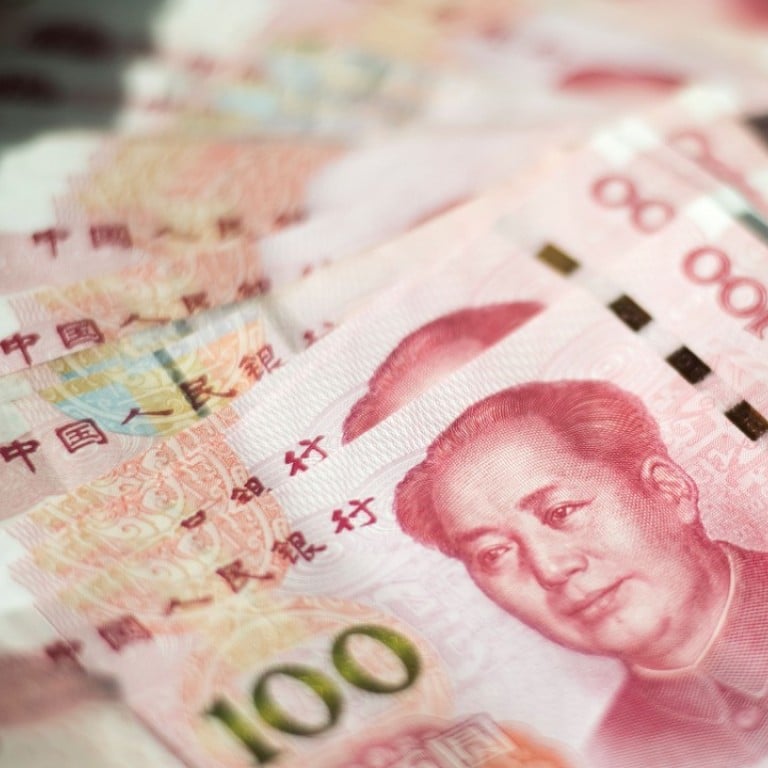
Is the day of reckoning coming for China’s corporate bond market?
A flurry of defaults is raising expectations that there could be many more to come as Beijing clamps down on financial risk
It’s a mixed bag – a green energy developer, a shoemaker, a telecom equipment manufacturer and a port on the border with North Korea.
But the businesses all have one thing in common: they’re among a rash of bond defaulters that has players wondering whether a day of debt reckoning in China’s US$2.8 trillion onshore corporate bond market is finally dawning.
At least 20 corporate bond defaults have occurred in China so far this year, with the latest coming on Monday from CEFC Shanghai, the troubled Shanghai-based energy conglomerate controlled by tycoon Ye Jianming.
China had 15 corporate bond defaults in the first four months of this year, involving a combined 12.9 billion yuan (US$2 billion), or a third more in value than the same time last year, according to China Government Securities Depository Trust and Clearing, the official source for bond data.
The defaults continued in May.
While the amounts are a drop in the bucket of the overall industry, analysts said defaults were set to grow this year and beyond as China’s central bank tightened up on monetary policy.
Observers said the tightening would make it more expensive and harder for Chinese corporate borrowers to get funds from investors.
There are signs that this could already be happening. On Monday, Shenzhen-listed gardening firm Beijing Orient Landscape and Environment said in its exchange filing that it had planned to raise 1 billion yuan by selling bonds with an annual coupon of 7 per cent but it only managed to raise 50 million yuan from investors.
Christopher Lee, managing director of S&P’s corporate rating department in Hong Kong, said corporate defaults in China were set to grow and spread from private businesses to state firms.
“[China’s] deleveraging campaign is affecting the liquidity [of borrowers who] relied on shadow banking channels for funding,” Lee said.
With control of financial risks a top national priority, the People’s Bank of China is putting the squeeze on shadow banking, ending a decade of financial exuberance where debts could be easily rolled over and defaults were rare.
Vice-Premier Liu He, one of President Xi Jinping’s top economic aides, told a gathering of political advisers last week that wrongdoings must be corrected.
“You can’t borrow all the money for your business. Debt must be repaid, investors must shoulder risks and wrongdoers must pay a price,” he was quoted by the official Xinhua News Agency as saying.
Most of the 21 defaulters so far this year have been private businesses but there have been signs of debt stress in the publicly traded sector, too.
Tianjin Real Estate, a property developer backed by the municipality of Tianjin, was set to miss a 200 million yuan repayment to a trust investment plan due on May 18, with the trust product’s manager, China Citic Trust, issuing a warning to investors on May 10.
The developer came through with the cash at the last minute but it still has a debt mountain of over 180 billion yuan.
Li Yang, director general of the National Institution of Finance and Development, a state-backed think tank, said that investors were reluctant to buy corporate bonds because the coupons were “inadequate to cover risks”.
Li, a former adviser to the central bank, said Beijing was now determined to deleverage.
“The previous logic was that we must drive up GDP growth in times [of financial stress],” he said. “Now the central government has great determination [to reduce financial risks at the cost of short-term growth].”
Peng Xingyun, a senior monetary policy researcher at the Chinese Academy of Social Sciences, said the central bank might follow the US Federal Reserve in raising market rates, a change that would make it even harder for borrowers to honour their debts.
“The US Fed rates have become an anchor since Beijing made the yuan exchange rate a higher priority,” Peng said.
But Brokerage house China Everbright Securities argued in a note on Tuesday that the ongoing bond defaults in China were caused by regulation more than economic fundamentals.
“This wave of defaults is a result of credit crunch caused by enhanced regulation,” China Everbright said. “The wave will retreat in about a quarter.”

